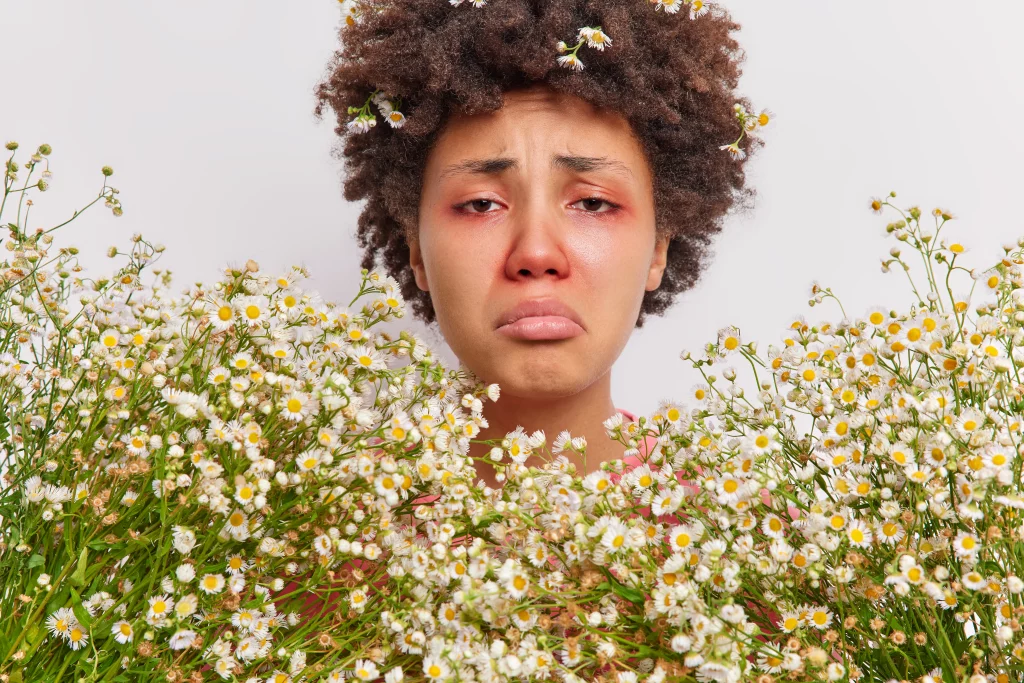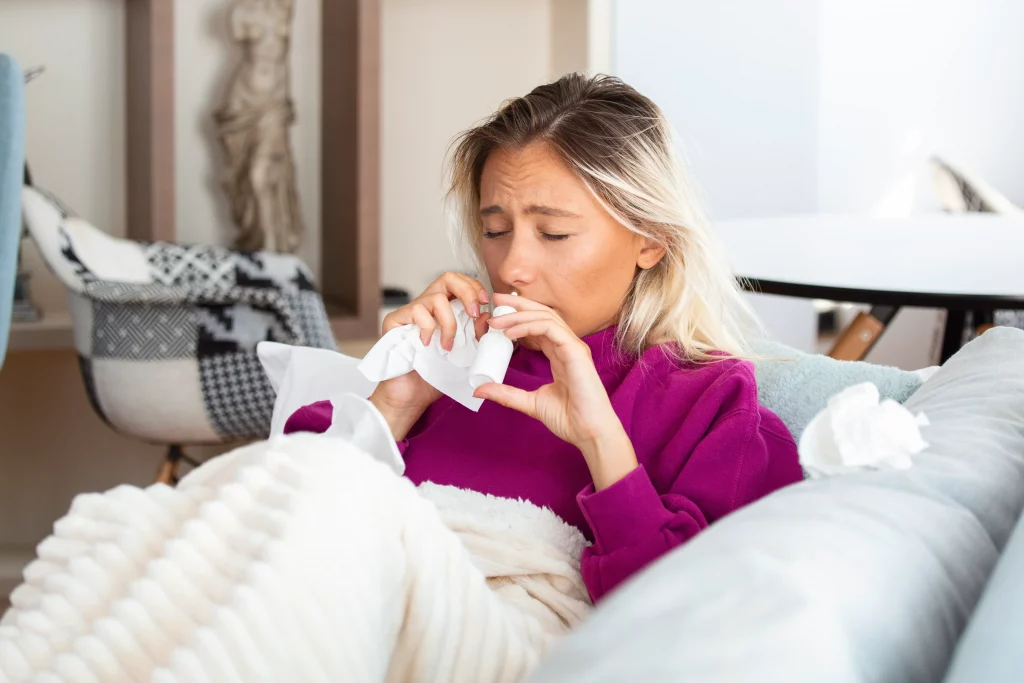Ways to treat seasonal allergies. Seasonal allergies are allergies that occur at certain times of the year, called allergy season, usually in response to pollen from trees, grasses, and weeds. Summer allergy symptoms vary, including sneezing, runny nose, itchy eyes, and congestion. Summer allergies are commonly referred to as hayfever season, and they get treated with over-the-counter medications, such as antihistamines and decongestants. Some people may also need to see an allergist for more severe cases to treat symptoms related to hayfever season.

These allergies typically occur in the spring and fall, when pollen levels are at their highest. However, people with seasonal allergies can also experience symptoms during other times, such as summer and winter. These allergies are different from hay fever, another type of allergy that occurs in response to pollen. Hay fever is a more severe form of seasonal allergy and can cause symptoms such as fatigue, headaches, and difficulty breathing. Mold spores and pet dander can also trigger seasonal allergies.
The allergy season typically starts in late spring and lasts through summer. Trees, such as oak, birch, and cedar, release pollen into the air, which can cause seasonal allergies. Grass pollen is also common in the summer. People with seasonal allergies may experience symptoms such as itchiness, red eyes, and a runny nose.
However, the exact start and end dates vary depending on the location. Allergy season typically begins earlier in the southern states and later in the northern states. Allergy levels are usually highest during the early morning and evening hours. Weather conditions can also affect allergy levels, such as wind, rain, and temperature.

The most common symptom of summer allergies is sneezing. Other season allergy symptoms include a runny nose, itchy eyes, congestion, and a cough. Seasonal allergies can also cause hives, eczema, and asthma. An overreaction of the immune system causes seasonal allergies to pollen or other allergens in the environment. When these allergens come into contact with the body, the immune system releases histamines, which cause the symptoms of seasonal allergies.
There are several ways to treat allergies.

Complications of seasonal allergies can include sinus infections, ear infections, and asthma. Seasonal allergies can also make it difficult to get a good night's sleep.